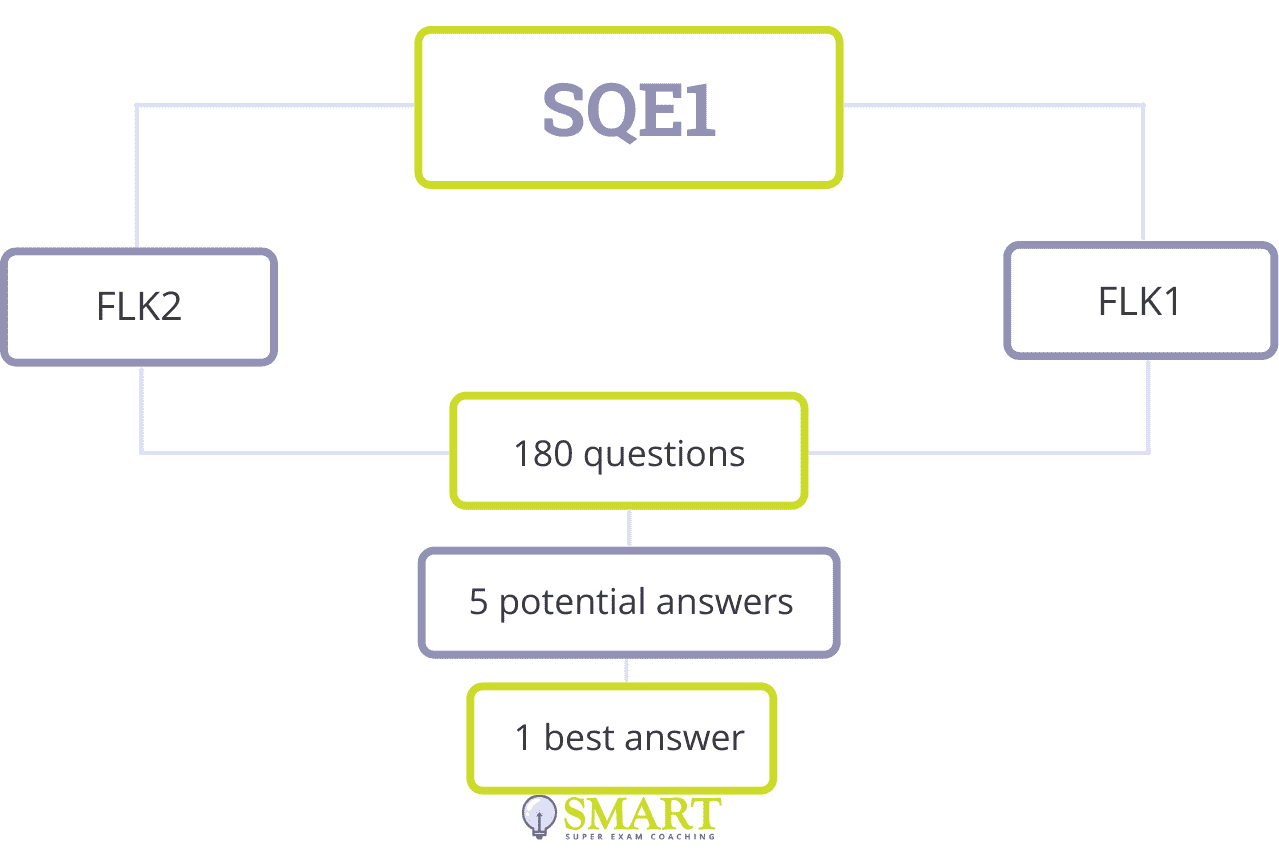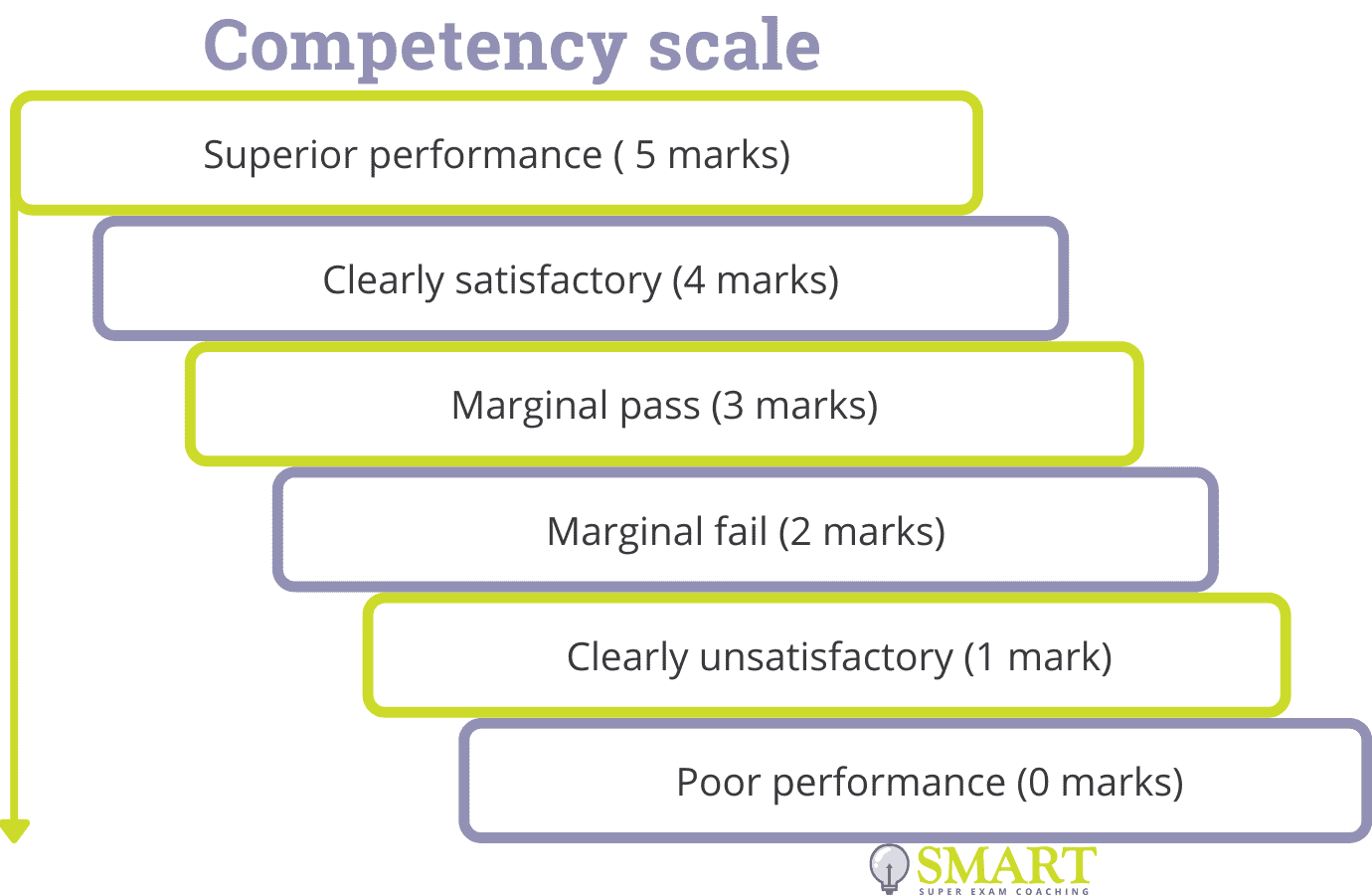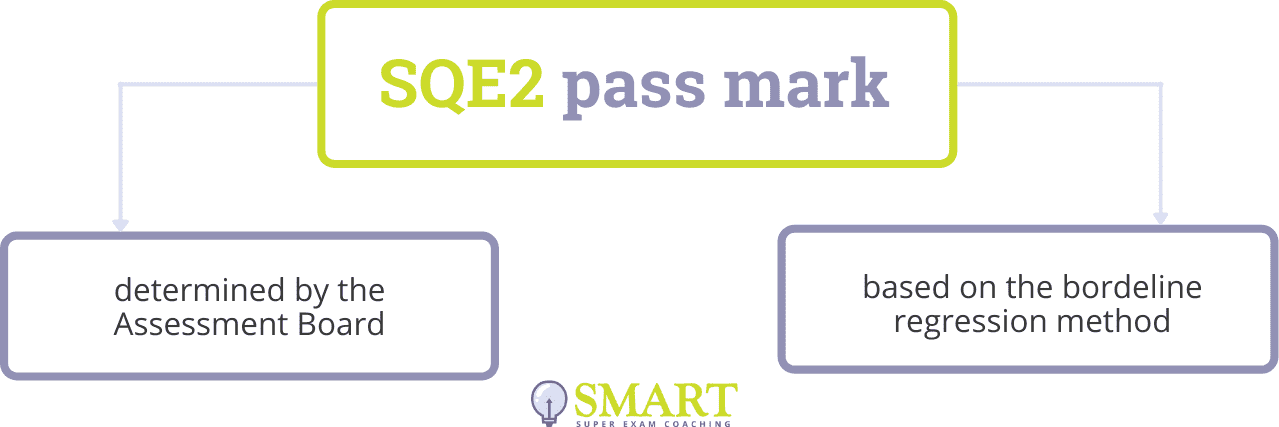The Solicitors Qualifying Examination (SQE) is a comprehensive examination which assesses the knowledge and skills of aspiring solicitors through all levels of the Miller Pyramid, i.e. from foundational knowledge and its application (as tested in SQE1) to the demonstration of skills and performance in practice (as tested in SQE2). The SQE marking process ensures that candidates are assessed fairly and consistently according to these rigorous standards.
Looking for SQE prep? Check our special offers:
- SQE1 Course: Customised for international candidates, streamlining complex legal concepts for easier understanding.
- SQE2 Training: Emphasises personalised SQE2 1-to-1 mock exam training delivered by seasoned professionals, with additional support for resitters.
Preparing for SQE1 or SQE2? Our dedicated resources are here to help you succeed:
SQE marking
The SQE standardised tests are administered by Kaplan and marked by qualified and trained assessors. Strict marking criteria are applied and passing marks are calculated to ensure that every candidate who passes the SQE has the level of competence of a Day One solicitor as defined in the SRA’s Threshold Standard.
One important point to note is that for both SQE1 and SQE2, the passing marks are not calculated, and SQE pass rates are not determined until the assessments are completed, and they can thus vary from one SQE sitting to the next. The exam itself will continuously evolve, with different questions and scenarios being used for each sitting, and statistical calculations are also made based on the actual performance of the candidates in each sitting to arrive at the final SQE pass mark.
There is therefore no standard passing mark for candidates to strive for; they must simply do their very best!
SQE1 marking process
The SQE1 exam consists of two multiple choice assessments testing the functioning legal knowledge (FLK) of each candidate. Each assessment has 180 questions with 5 potential answers, where candidates must select the single best answer.

The marking system for the SQE1 assessments is fairly straightforward. One mark is awarded for each correct answer. No marks are awarded where multiple answers are selected, and marks are not deducted for incorrect answers. The marks are then aggregated and rounded to calculate the percentage marks for FLK1 and FLK2, respectively.
What is the SQE1 pass mark?
In order to pass both FLK1 and FLK2, candidates must achieve the overall pass mark for each assessment. The pass mark is determined by the Assessment Board through the Modified Angoff method, where a panel of qualified solicitors reviews each question and predicts how many just-competent Day One solicitors would answer the question correctly. A summary and average of the rating for each question by each member of the panel produces a cut score. Further statistical processing based on the actual performance of the candidates and to correct for measurement errors is then carried out to arrive at a final pass mark for the assessment.
SQE2 marking process
The SQE2 stage consists of a total of 16 stations, testing the candidate’s skills and application of legal knowledge through practical oral and written exercises. The SQE2 assessments are marked by trained solicitors (and a trained assessor for the client interview) according to global professional judgements rather than a “tick box” approach. All assessors are trained to employ a standard approach in their assessment, and specific marking criteria are defined for each exercise.
Most of the SQE2 assessments are marked on both skills and application of law, where each is weighted equally and combined to arrive at a total score for the station. The only station with a slight difference is the client interview and attendance note: the client interview itself is only assessed on skills, not on application of law. The attendance note/legal analysis is then assessed on skills and law. The total skills mark for the station consists of the two skills marks combined with equal weighting, and then that total skills mark is weighted equally with the law mark from the attendance note to arrive at the total mark for the station.
The marks are awarded for each criteria based on the candidate’s performance as judged by the assessor in reference to the following competency scale:
- Superior performance (5 marks)
- Clearly satisfactory (4 marks)
- Marginal pass (3 marks)
- Marginal fail (2 marks)
- Clearly unsatisfactory (1 mark)
- Poor performance (0 marks)

The final SQE2 percentage score for the candidate is calculated as a rounded average of the summed total of the 16 station marks.
SQE2 law mark
SQE2 law mark refers to the correct and comprehensive application of the law, encompassing various aspects crucial to the legal profession. This involves:
- Identifying legal principles
- Applying them to address client needs
- Interpreting and applying research
- Ensuring informed advice
- Drafting legally effective documents
- Problem-solving through critical thinking
- Assessing key issues and risks
- Recognizing inconsistencies and gaps
- Evaluating information quality and reliability
- Making reasoned decisions supported by evidence.
The interpretation of each element in the SQE relies on academic judgment in accordance with the Statement of Solicitor Competence (Annex 3) and the Functioning Legal Knowledge for SQE2 (Annex 1). To illustrate, the concept of comprehensiveness may entail the identification of all unflagged issues or the integration of a detailed analysis by referencing all pertinent facts.
SQE2 skills mark
SQE2 skills mark involves various criteria that can differ between SQE2 assessments. It is crucial to thoroughly review the specific criteria applicable to each assessment.
Among the most critical criteria is the ability to use “clear, precise, concise, and acceptable language,” a requirement consistent across all SQE2 stations. Hence, special attention should be dedicated to mastering this particular criterion.
At the Academy of Smart Lawyers, we provide comprehensive guidance on approaching SQE2 assessments in our mock simulations. Our SQE2 one-to-one mock exams simulate the actual assessment conditions and come with personalised feedback. We also elucidate the SQE marking process to enhance your understanding.
For further insights into SQE2 skills, you can explore the details here.
What is the SQE2 pass mark?
In order to pass SQE2, candidates must achieve the overall pass mark for SQE2.
The SQE pass mark is determined by the Assessment Board through the borderline regression method, where, in addition to the candidate’s marks, the examiners provide a “standard-setting” grade of pass, marginal pass, marginal fail, or fail. This standard-setting grade is then used to calculate the cut score of a “borderline” candidate, which is then adjusted through further statistical processing to correct for any measurement errors and arrive at a final pass mark for the assessment.

SQE pass rate
SQE1 pass rate
On 20 January 2022, the Solicitors Regulation Authority revealed the results of the first-ever Solicitors Qualifying Examination which took place on 8 and 11 November 2021. According to the SRA, 1,090 candidates participated in the November SQE1, with 1,073 candidates sitting both FLK1 and FLK2. The overall SQE1 pass rate constituted 53% with 67% of candidates passing FLK1 and 54% of candidates passing FLK2.
SQE2 pass rate
For the SQE2 exam, which was first held in April 2022, the pass rate was notably higher. According to the SRA, out of the 726 candidates who sat for the exam, 77% successfully passed, reflecting a strong performance in this practical assessment compared to the SQE1 results.

SQE for foreign vs domestic candidates
Because the SQE uses a comparative and scaled scoring system, candidates are not only assessed against a fixed pass mark but also in relation to the overall performance of the cohort. This makes the exam comparative, and in some ways indirectly competitive, even though there is no cap on the number of candidates who can pass. Under the old Qualified Lawyers Transfer Scheme (QLTS), foreign candidates were assessed separately, effectively competing only against other foreign-qualified lawyers. With the SQE now serving as the single route to qualification for all aspiring solicitors — domestic and foreign — the context has shifted.
According to the SRA’s statistical reports, language proficiency plays a critical role in SQE2 performance. Clear, concise, and precise communication is essential for scoring well in written assessments, advocacy, and client interviews. For candidates whose first language is not English, this often results in lower comparative performance, even when their underlying legal knowledge and practical skills are strong.
This shift suggests that the level of English needed to pass and qualify may now be higher than it was under the QLTS. Because SQE results are scaled against overall cohort performance, the language gap can make the challenge even greater for foreign candidates. Investing in tailored preparation and targeted language support is now more important than ever to stay competitive and maximise your chances of success.
SQE training at the Academy of Smart Lawyers
At the Academy of Smart Lawyers, we believe in providing an exceptional educational experience that goes beyond the conventional methods. Here’s how we achieve this:
– Quality Over Quantity: We prioritise mistake-driven learning and active tutoring through SQE2 one-to-one sessions.
– Respect and Diversity: Our global community of diverse legal professionals is united to transform the future of legal education. As a student, you join us not just as a learner but as a colleague and a member of the Smart community. Our programmes, including the SQE1 and SQE2 courses, Higher Rights of Audience, and other professional training, are designed to foster collaboration and inclusivity.
– Smart Technology: We champion online education, digitalisation, and EduTech with our cost-effective and flexible SQE training platform. This platform is tailored for individualised learning, offering a variety of resources such as SQE1 materials, SQE2 mock exams (SQE2 mock simulations), and SQE Multiple Choice Questions (MCQs).
FYI: SQE1 pass rates (as of October 2024)
| FLK1 | FLK2 | SQE1 overall | |
| January 2024 | |||
| Candidates | 6204 | 6476 | 6061 |
| Passing Score | 300 | 300 | – |
| Pass Rate | 63% | 61% | 56% |
| July 2024 | |||
| Candidates | 5332 | 5519 | 5006 |
| Passing Score | 300 | 300 | – |
| Pass Rate | 55% | 50% | 44% |
FYI: SQE2 pass rates (as of November 2024)
| Sitting 1 | Sitting 2 | Sitting 3 | Sitting 4 | Overall | |
| April 2024 | |||||
| Candidates | 564 | 612 | 513 | 492 | 2181 |
| Pass Mark | 61% | 61% | 62% | 61% | – |
| Pass Rate | 81% | 78% | 79% | 78% | 79% |
| July 2024 | |||||
| Candidates | 343 | 348 | 241 | – | 932 |
| Pass Mark | 62% | 61% | 61% | – | – |
| Pass Rate | 71% | 80% | 72% | – | 74% |